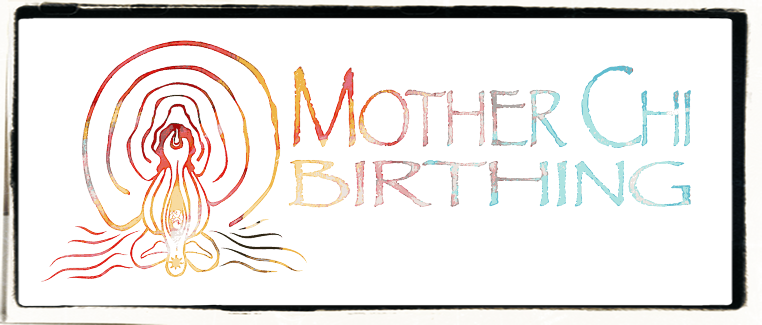Birth is sexual with a capital "I..."
Don't know about you, but I grew up in an environment where we didn't talk about sex or sexuality or sensuality. I first learned about sex in church. The message I got was, "don't do it...avoid everything that makes you think or feel sensual...and you will know when the right person, your future husband, comes along to enjoy your virginity."
We didn't talk about vaginas or breasts or penises. These were things we would discover for ourselves when the time was right...hopefully on our wedding night in our wedding bed. Those "parts" of our bodies were secret, dirty, and forbidden...until the "right" person came along with a magic key.
Expectations did not match reality. A sense of failure set in.
You can imagine the shame and guilt that came about when sexual/sensual feelings would arise. And it was this shame and guilt that would later lead to sex as a self-destructive behavior. A weapon of sorts. A knife that would cut away a little piece of soul with every act of self-destructive misery. No sacredness. No love. No connection. No feeling. No INTIMACY.
So...how does all this relate to birth?
If birth is sexual, and not just sexual, but INTIMATE...how might our understanding of sex and intimacy affect our birth experience? How might our expectations for birth set us up for a sense of failure if our birth reality is very different?

Everything about birth calls us to intimacy with ourselves, with our partners, and with the experience as a whole. This is why, in my opinion, some women opt out of "feeling" birth. It is too much to go there...to touch ourselves, make noise, move sensually, and invite our partners into the experience. If we truly include our partners, then they might witness us being vulnerable, crying out, moaning from our core, moving from within, or panting like a tired fox. Perhaps not only is it too much, but maybe we don't know how! Not knowing is scary! We feel like a child...like that child who was shamed for feeling juicy, and alive, and connected to self. How could we fathom being naked and exposed in front of others if we are terrified of being naked and exposed in solitude? How can we envision ourselves with legs and vagina open and loose if we were conditioned to sit properly, legs crossed, and (gasp)..."we don't say that word...we say 'private parts!'" If we have learned that sex is a one way street, intended to pleasure your partner but not you, then envisioning a sexual/sensual/intimate experience...with self, with partner lovingly and patiently holding a space for us to intuitively move, breath, push, and vocalize...is out of the question. And forget patience. Allowing time for the juices to flow, for the rushes to send us into purple orbit, for the pain to transform into healing balm, for our jaws to loosen and sing to our cervix, and for our body to open and pour out...there is no time for this! It is hard to find pleasure in the journey without care for the outcome. For this requires sheer presence and patience and surrender to the unknown...something we are not culturally conditioned to do! Lastly, if sex is used in our lives as a self-destructive mechanism, then surely birth is out to get us. Birth will swallow us whole and spit us out to the wolves. This is of course not true. However, if we arrive at birth with all these agreements, then we stand to experience birth in a traumatic light.

This is how so many women end up giving their power away to the medical model. The medical model strips the birthing experience of intimacy. It may still be a sexual experience, but often times, without intimacy. And what is sex without intimacy? Draining, stiff, more painful, outcome focused, sometimes miserable, and perhaps even traumatic. Just as we cannot think our way through sex (unless we never want to orgasm or experience pleasure), we cannot think our way through birth. We must feel...and the medical model requires that we think, analyze, count, judge, and socialize.
I want to be clear that there is a time and place for intervention. Sometimes it can be the next best thing. But opening ourselves to intervention out of necessity is very different from submitting to someone else's plan for our birth. I also want to say that birth can be intimate anywhere, but different places pose different challenges to our sensual self, and we should be mindful of these challenges...setting up a support team of guardians (partner, doula, midwife, and other support members) who can guard our sacred space...no matter where! And...it's ok to be afraid of intimacy...of our sexual self...and you are not a failure if this fear plays a role in your birth. You are not alone! Think of all the other women who have gone before or who are birthing at the same moment you are that must deal with the same fear and feelings! Send love to your beautiful, vulnerable, scared self...send your breath to the birthing woman who might need it right this very instant!

So how do we deal with this sexual/sensual/intimate dilemma? How do we empty our bowl of expectations and open it back up to grace...to whatever our birth might bring us? We become a
birth huntress...taking the time during our pregnancy to hunt those parts of ourselves that will not serve us in birth. We include our partners in our birth journey. This is their birth too!

We prepare in a practical way, but also from within! We call intimacy into our birth experience. We allow intimacy to play with us by searching our hearts, souls, and inner most spaces. We accept the spiritual and sensual nature of birth. We get comfortable with being uncomfortable. We honor our inner child by thanking her for being afraid to feel, and then we ask her to play with us...a game of "blindfold" where we take turns "feeling" our way through pregnancy, birth, and postpartum. We include our baby in the process, taking into account their feelings and direction...listening from within...opening our ears to their voice inside of us. Hire a doula! Their presence will allow you to be more fully in your birth...more deeply supported...more primal and sensually right brained...more INTIMATE with yourself, your partner, your baby, and your birth.
This is a very courageous thing to do!
Blessings to you dear birth warrior...to your fears and feelings and sensuality...
Intimately and with an empty bowl,
Betsy
Send attention to your breasts and vagina...how do you feel about your body and your sensuality? What is one thing you can do now, today, to experience intimacy with yourself, your partner, and your baby?
To get more info on Birthing From Within childbirth preparation
click here.
















.jpg)


































